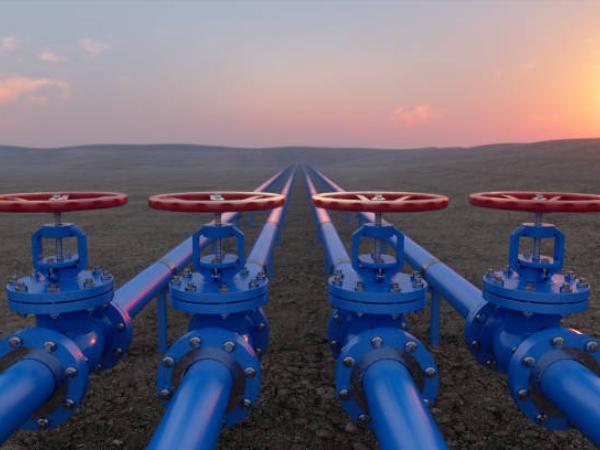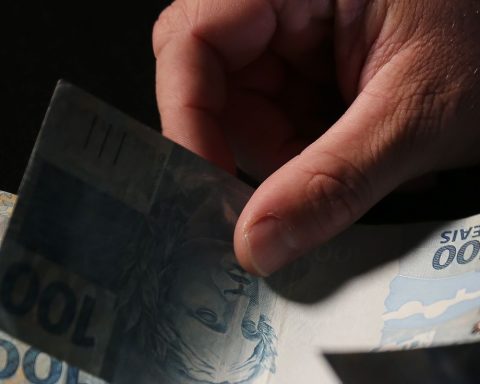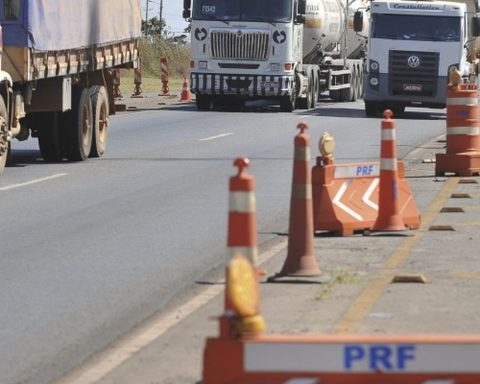Colombia faces a Natural gas deficit for the coming years, starting from 2025as revealed by the Natural Gas Market Manager after publishing the firm offer of natural gas available for sale. And the Development of local fields will not be a short-term option, warns a report by the firm Rystad.
(We recommend: Will heavy oil be discontinued first, as Petro claimed? This is what experts say)
By 2025, according to According to Naturgas data, 12% of demand would be needed for next year and by 2026 it would expand to 30%. This implies that a series of measures must be activated to allow the market to be supplied.
And the report from the energy research firm, Rystad Energy notes that production from current fields is showing a decline that will intersect with the demand curve and will lead to a need to find new sources of supply to meet demand.
The firm’s analysis indicates that the deficit would begin to be seen from 2027 and would extend until the end of 2032, when they expect the discoveries of natural gas in the Caribbean to be offshore start meeting local needs.
(You may be interested in: Naturgas calls for action to address a natural gas deficit in the coming years)
However, the demand curve presented by the firm is the average consumption between 2017 and 2022, so it does not include possible increases in consumption, which could alter the start of the deficit and when it could be covered with the resources of the offshore province.
During the period that this deficit would last, Rystad warns that the country could become very exposed to the liquefied natural gas market In addition, it is highly dependent on discoveries in the Caribbean Sea coming in at the right time and actually being developed.
Additionally, the gas input from offshore to the market takes into account that the development periods of these fields are within a margin of eight yearsalthough they note that “technically the time could be significantly shorter.”
(Of interest: Actions are urgently needed to reverse the decline in gasoline consumption, which has lasted 13 months)
Alternatives
The report of the The firm stresses that there are three possibilities for the country to achieve the supply it requires. The first of them refers to the import of liquefied natural gaswhich takes into account the existing regasification infrastructure in Cartagena, as well as the one expected to be built in Buenaventura.
Secondly, it raises the possibility of that the gas pipelines that currently connect Venezuela with Colombia be used and that it is an option that the Colombian government has been working on. Thirdly, they mention the development of new local production in existing basins.
(Read: Ecopetrol and Frontera among those aiming to import gas due to possible deficit)
On these options, Rystad points out that the Importation of liquefied natural gas could generate a risk of a “hydroelectric crisis”. It is worth highlighting that Colombia’s electricity generation matrix comes mainly from hydroelectric plants and in times of drought, thermal power plants increase their production to cover the shortfall.
However, Andeg has pointed out that the agreement for thermal power plants to generate with the gas imported through the Spec regasification plant goes until 2031according to Alejandro Castañeda, president of the union.
(Recommended reading: There are 600 thermal megawatts awaiting auction, but gas supply is required)
With respect to import from Venezuela Using the Antonio Ricaurte gas pipeline, the firm highlights that itIn the last seven years there have been no imports from the neighboring country and that could cause dependence on production control and costs imported from Venezuela.
It is worth noting that so that business can be done between Pdvsa (Venezuelan state oil company) and Ecopetrol, which is the company with which there are current gas purchase and sale contracts, The Office of Foreign Assets Control (OFAC) is required to authorize these exchangesThis is because PDVSA is included in the well-known Clinton list, which means that companies have restrictions on doing business, as they would be exposed to sanctions from the United States.
Finally, Regarding gas from local sources, the firm says that the “supply gap is quite close for new developments“This implies that rapid alternatives must be considered on several fronts.
(Related: Ecopetrol seeks to increase its commitment to fracking in the US with a new acquisition)
Progress and requests
Ricardo Roa, president of Ecopetrol, said that they are advancing in several plans to prevent the country from not having gas to supply the market. “Our schedules allow us to establish that we will not have a gas deficit in the country,” Roa said a few days ago.
He pointed out that one of the most relevant plans that is being advanced to modify the commercial framework so that up to 160 GBTUD are enabled thanks to relaxations in the conditions.
It is worth noting that this was a draft decree submitted by the Ministry of Mines and Energy in May and proposes modifications to Decree 1073 of 2015 and that would allow entry to more molecules to be contractedHowever, this has not been submitted in a final form and would require action by the Energy and Gas Regulatory Commission (CREG), which does not yet have a quorum to make decisions.
(Read also: Changes in gas imports and sales proposed by the Government in response to deficit alert)
“A decree will soon be issued to relax this regulation and allow Ecopetrol to make an offer of gas contracts to cover between 120 and 160 GBTUD.“, Roa said.
Additionally, lThey launched a request for information to explore alternatives for receiving, storing and regasifying Liquefied Natural GasThe company expects to have the contract signed in the second half of the year to carry out the works that will enable it to have this import infrastructure.
Luz Stella Murgas, president of Naturgas, called for swift action.The decrease in supply reaffirms the need to prioritize public policy and regulatory decisions aimed at increasing the local gas supply and enabling all external sources We have insisted to the Ministry of Mines and Energy and the Creg that marketing gas under the current rules, in a tight market scenario such as the current one, could lead to an increase in natural gas prices.“Murgas said.
Daniela Morales Soler
Portfolio Journalist


















